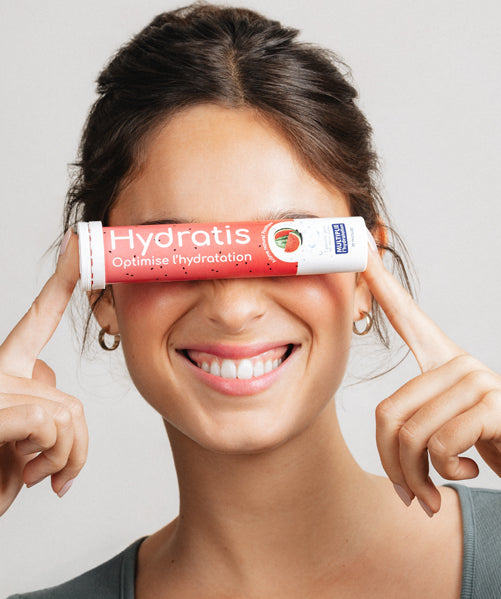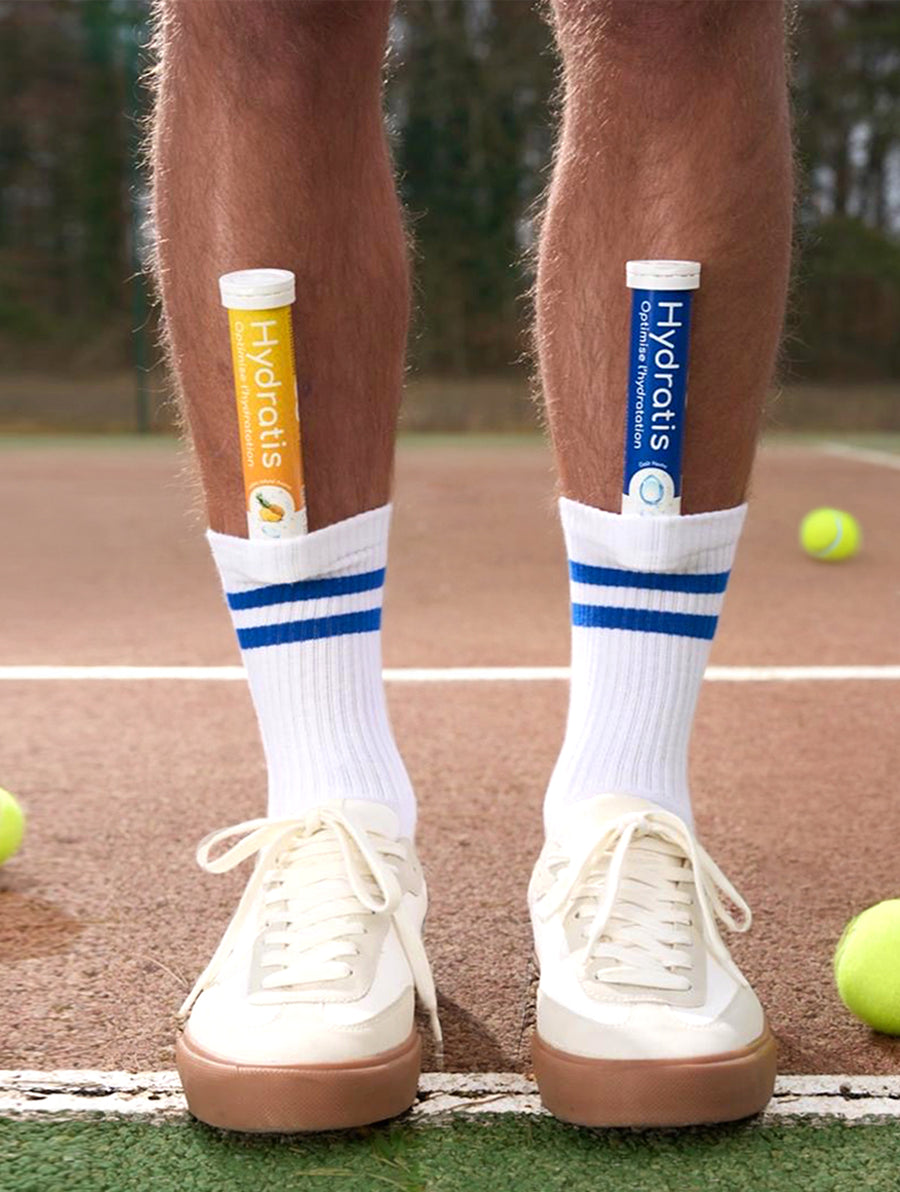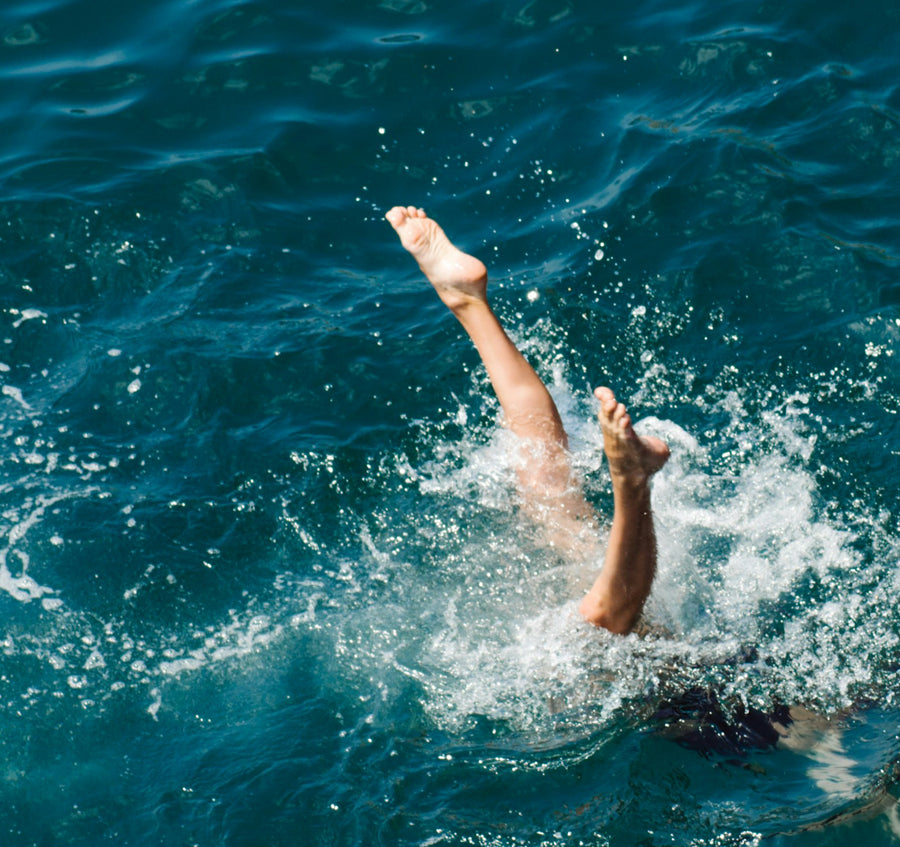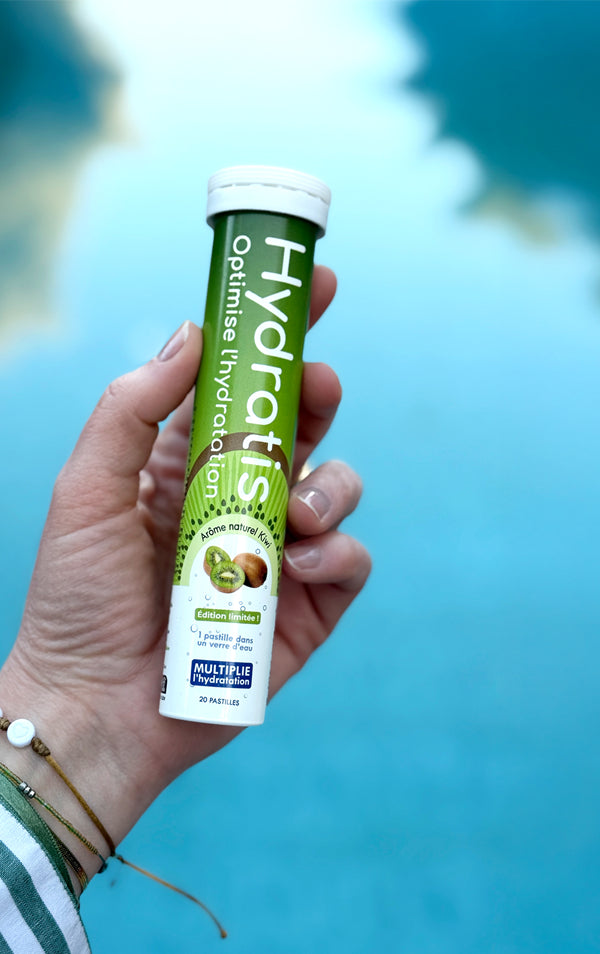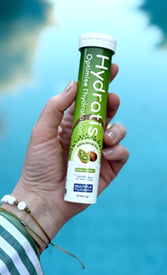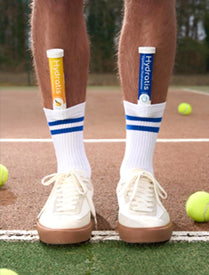Drinking water is essential for staying healthy, and it's even more so when you're playing sports to be in top shape! Given our body mass, which is approximately 60% water, it's essential to understand the importance of hydration for optimal functioning. Sports , in particular, lead to particularly high water requirements, which are in addition to the normal functioning of the metabolism. This article will allow you to discover all the details.
1. Understand the basics of hydration
1.1 The role of water in the body
Water is used in many ways by the body. In the blood, it is used to transport the oxygen we breathe . Water is found in many other places: it is also involved in many internal reactions in the human body, such as the hydrolysis of ATP, which creates muscle energy. It is the vector of some of our waste products with urine, but it is also the solvent of gastric juices that allows the breakdown of food, necessary for digestion.

Water is, above all, one of our only means of ensuring thermal homeostasis , that is, maintaining our bodies at an optimal temperature . Indeed, water has a high thermal capacity (higher than most metals!) and represents 60% of our mass, thus allowing efficient heat conservation. In addition, it serves, through perspiration, to evacuate heat outside our bodies to cool them.
1.2 Why do water requirements vary?
Different water needs depend mainly on body volume and its use , as mentioned above. A person with a larger mass will need even more water, just as an athlete will use it much more quickly through much more abundant perspiration.
1.3 Risks associated with insufficient hydration
Insufficient hydration can lead to many problems , especially because of the many roles water has to play. This is called dehydration . It has many signs and symptoms , starting with thirst and only getting worse. Water losses, such as urination and sweating, continue to occur at the expense of other needs, thus reducing the blood volume passing particularly to the brain, which is also very sensitive to temperature variations. In addition to general dysfunction of the body and the increased risk of cramps , you can therefore expect nausea and even neurological disorders in the most extreme cases.
2. Hydration and sports performance: an essential link

2.1 Why is hydration essential for athletes?
Among the roles of water , some are very much in demand among athletes, in particular cooling through perspiration which requires and leads to the loss of large quantities of water. Exhaled air is saturated with water vapor and it is important to know that an athlete exhales much more air. This is why water is lost very quickly, hence the importance of drinking regularly during exercise to stay efficient and avoid dehydration.
2.2 Signs and consequences of dehydration on performance
As soon as dehydration and thirst appear, water begins to be lacking and it is no longer possible to sweat sufficiently, so body heat increases. However, body temperature must be maintained for the metabolism to function properly. If this is not the case, certain important chemical reactions are slowed down or prevented because proteins and enzymes need a very precise temperature to function properly. In addition to the intense sensation of thirst, the athlete experiences a reduction in the efficiency of a large number of vital functions, thus decreasing their performance . According to some scientific studies, 2% dehydration is equivalent to 20% less physical and cognitive performance . Imagine a marathon runner who runs the most famous Olympic distance in 4h30, would take 5h24!
2.3 Preventing cramps and maintaining performance
Muscle cramps are usually associated with dehydration and are fatal to an athlete's performance. In addition to preventing continued exercise, they can immediately follow an injury and, as everyone knows, are very painful. Therefore, with more frequent cramps and a general decrease in body performance, it is essential for athletes to stay properly hydrated.
3. When and how to hydrate depending on the effort?
3.1 Before the effort: prepare properly
First of all, the most effective thing for an athlete is to be properly hydrated before exercise. This will help delay the first need to drink during performance. But the most important thing remains to have a good electrolyte balance . Indeed, electrolytes , and in particular sodium , are necessary for several bodily functions but are particularly useful for conserving and using water more efficiently. However, perspiration mainly removes water and minerals such as sodium (which come from the white marks on your clothes when you sweat a lot!). It is therefore interesting to consume electrolyte drinks to compensate for these mineral losses. Especially since the blood sodium level decreases during exercise, thus amplifying the loss in performance.
3.2 During exercise: staying efficient

During physical activity, it is important to maintain good hydration to optimize your performance and thus delay fatigue . Electrolyte intake will play a key role in helping to preserve water balance , support muscle contraction and limit the risk of cramps. Proper hydration from the start of the exercise can also promote better recovery once the session is over .
3.3 After exercise: recover effectively
After exercise, electrolyte levels, especially sodium, are likely to drop. It is therefore recommended to consume electrolyte-rich drinks to aid recovery and ensure a good electrolyte balance.
4. What drinks should you choose for optimal hydration?
4.1 Water: the essential element not to be neglected
Water is the basis of hydration and remains essential for the proper functioning of the body. Electrolytes will come in as a supplement to optimize its effectiveness, but good hydration begins above all with regular consumption of water, whether it comes from the tap or bottles .
4.2 Electrolyte-enriched drinks: for specific needs
Water alone may not be enough to compensate for water and mineral losses for specific needs such as during very hot periods , synonymous with significant water loss, sports activities or even recovery from dehydration. This is where electrolyte-enriched drinks will help restore water balance and optimize the body's water absorption.
4.3 Recovery drinks: repair after exercise
After exercise, hydration also plays a key role in muscle recovery and replenishing mineral reserves. Electrolyte-enriched solutions will help restore this balance while promoting rapid and effective rehydration. This is where you can use Hydratis , a solution based on minerals and trace elements, which will allow for better water absorption by the body. The lozenges are available in a variety of flavors such as peach, wild berries, lemon elderflower, etc.

Staying well hydrated is essential for physical activities and exercise, which use up water from the body much more quickly. To maintain peak performance, it's important to adapt your diet and consume electrolyte-rich drinks, and above all, stay well hydrated, whether before, after, or during exercise.
